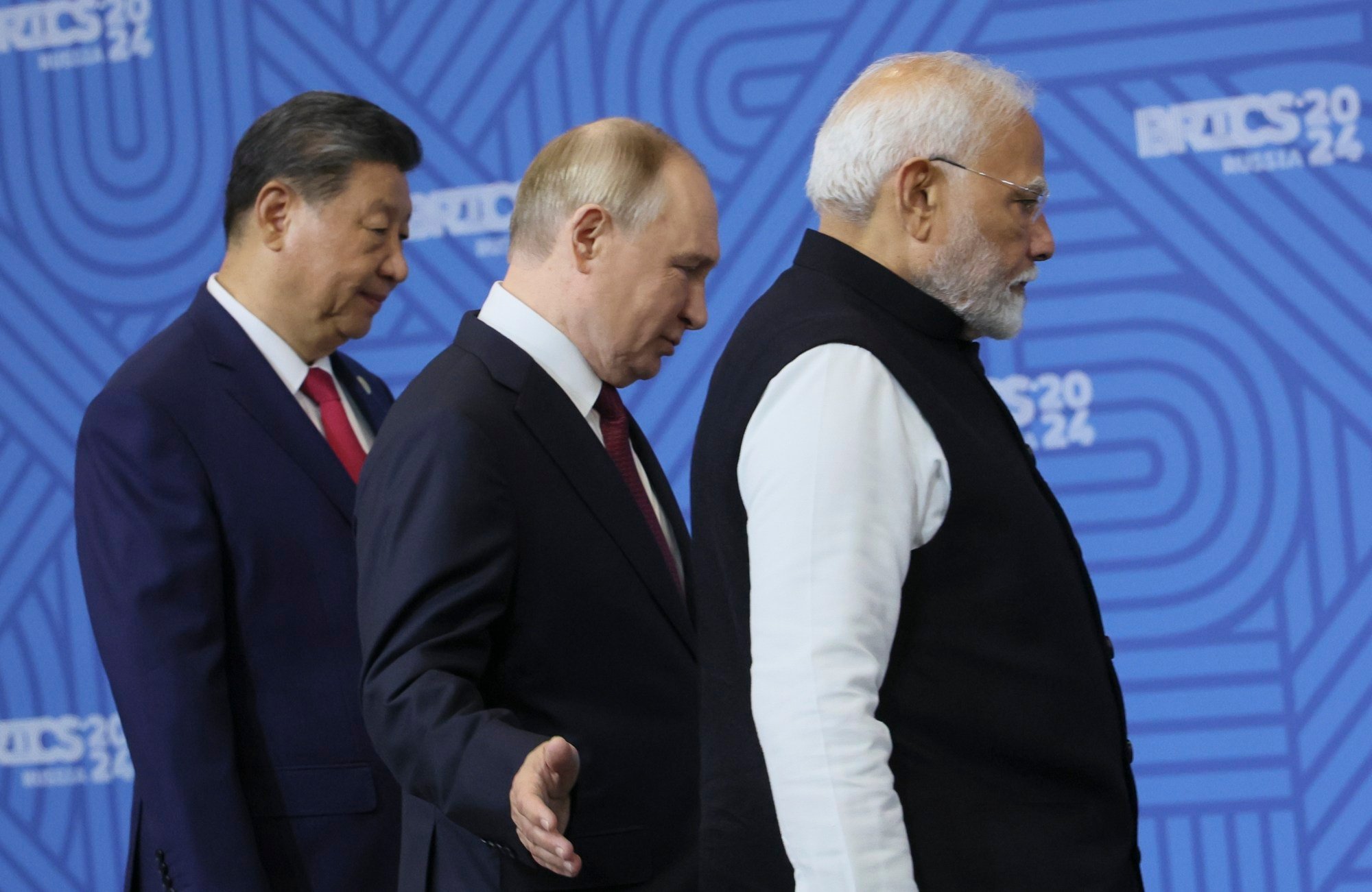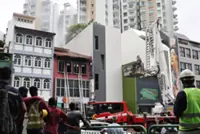
Brics countries “have not and are not” creating an alternative to Swift in their pursuit of financial cooperation, Russian President Vladimir Putin said at the conclusion of the bloc’s annual summit on Thursday.
Putin made the remarks at a press conference after the summit he chaired ended in the Russian city of Kazan. Leaders and delegates from 35 countries converged to discuss pressing issues before the group of major emerging national economies.
The Kazan Declaration – adopted by Brics at the summit – indicated that the countries recognised the benefits of a more transparent and safe cross-border payment infrastructure.
Do you have questions about the biggest topics and trends from around the world? Get the answers with SCMP Knowledge, our new platform of curated content with explainers, FAQs, analyses and infographics brought to you by our award-winning team.
It also described a willingness to explore the “feasibility” of establishing an independent Brics cross-border settlement and depository system.
Yet the development of an independent Brics settlement infrastructure did not feature in speeches at the summit delivered by Chinese President Xi Jinping and Indian Prime Minister Narendra Modi.
The two leaders instead voiced a broader intention to improve financial integration and cooperation among the member countries.
“As for Swift and some alternatives, we have not created and are not creating any alternatives for anyone,” Putin said on Thursday, according to a statement released by the Kremlin.
Swift is the main international payment messaging network used by clearing or settlement systems. Russia was cut off from Swift as a result of Western-led sanctions following the start of its war in Ukraine in 2022.
The move has greatly restricted the country’s ability to settle international payments.
“The issue is very important today and one of the key problems is the problem of settlements,” Putin added. “Therefore, we are following the path of using national currencies.”
That said, the Russian leader noted “we are not inventing any separate general system yet”.
“What we have is, in principle, sufficient,” he continued. “We just need to make appropriate decisions at the administrative level in a timely manner.”

For Moscow, one of the Kazan gathering’s main priorities was “providing assistance in transforming the international payment system”, according to the summit’s website.
New Delhi was amenable. Modi on Wednesday said India welcomed “efforts to increase financial integration among Brics countries”, including trading in local currencies and smoothening cross-border payment, according to the country’s ministry of external affairs.
On the summit’s final day, leaders and representatives from three dozen countries met to discuss Brics-plus outreach in areas that spanned sustainable development, climate change, economic cooperation and the escalating conflicts in the Middle East.
While throughout the summit several leaders, including Xi, raised the topic of de-escalating the war in Ukraine, most of the focus on Thursday centred on Israel’s intensification of the conflicts in Gaza and Lebanon.
At Thursday’s press conference, Putin said all the countries – particularly China and Brazil, who are both pushing for a peace plan – wanted to see an end to the armed conflict in Ukraine.
Xi on Thursday said Brics countries “must be a stabilising force for peace, strengthen global security governance and explore solutions to hotspot issues that address both the symptoms and root causes”, according to China’s state news agency Xinhua.
However, Putin made clear that any options regarding the war in Ukraine must be based on “realities on the ground”.
“Everyone is determined to end the conflict as quickly as possible and preferably by peaceful means,” he said.
“We are ready to consider any options for peace agreements based on the realities that are developing on the ground. And I am not ready for anything else.”
More from South China Morning Post:
- China’s call for global financial reform is a loud message to West, Global South: analysts
- Defend euro against China-Russia push for alternative currency: Europe’s bank chief
- Xi Jinping and Narendra Modi meet, 2 days after a China-India border deal
- Chinese leader Xi Jinping urges Brics to lead ‘urgent’ international finance reform
- Xi and Putin vow stronger China-Russia cooperation for ‘fair world order’ at Brics summit
For the latest news from the South China Morning Post download our mobile app. Copyright 2024.











































